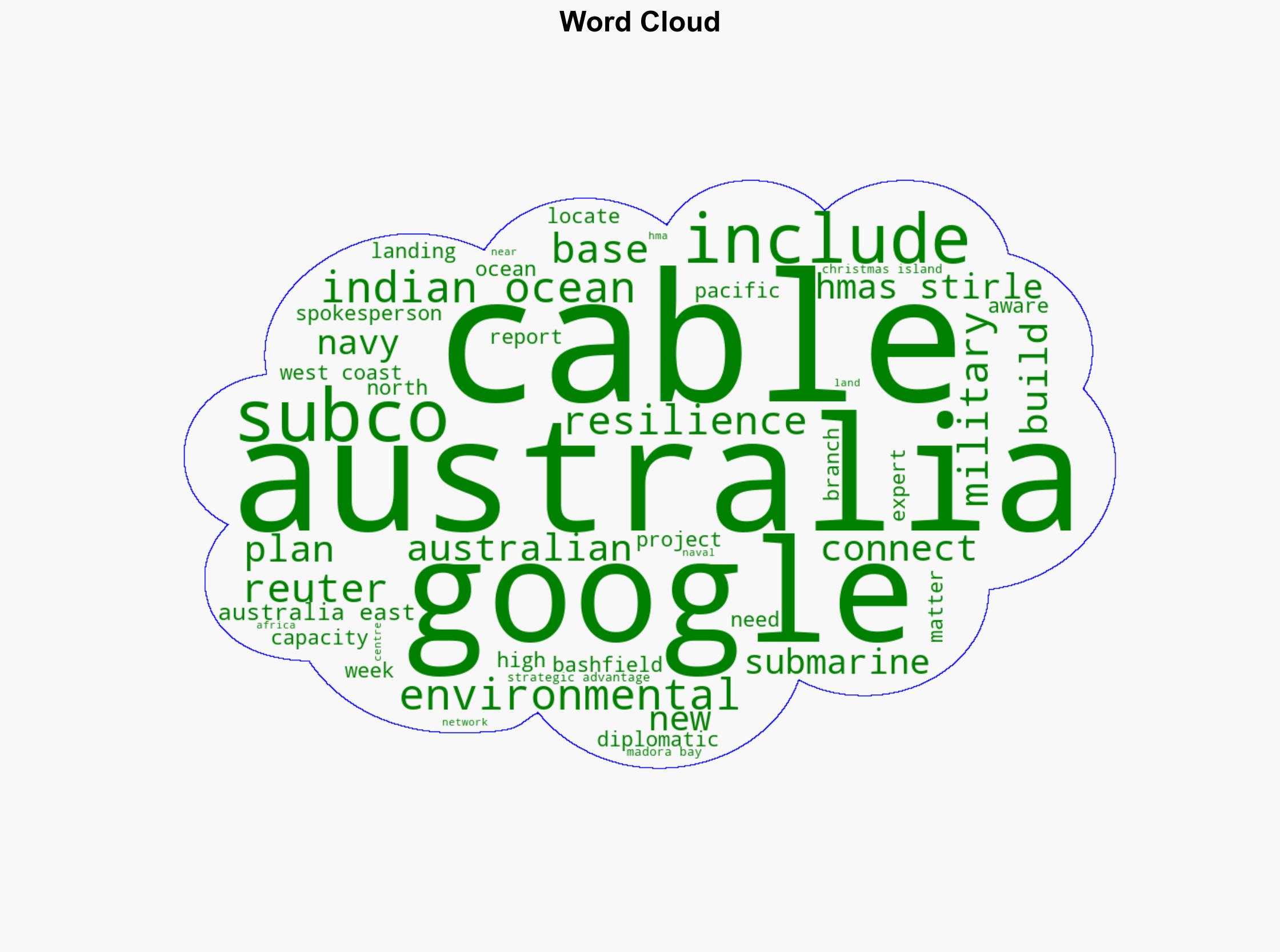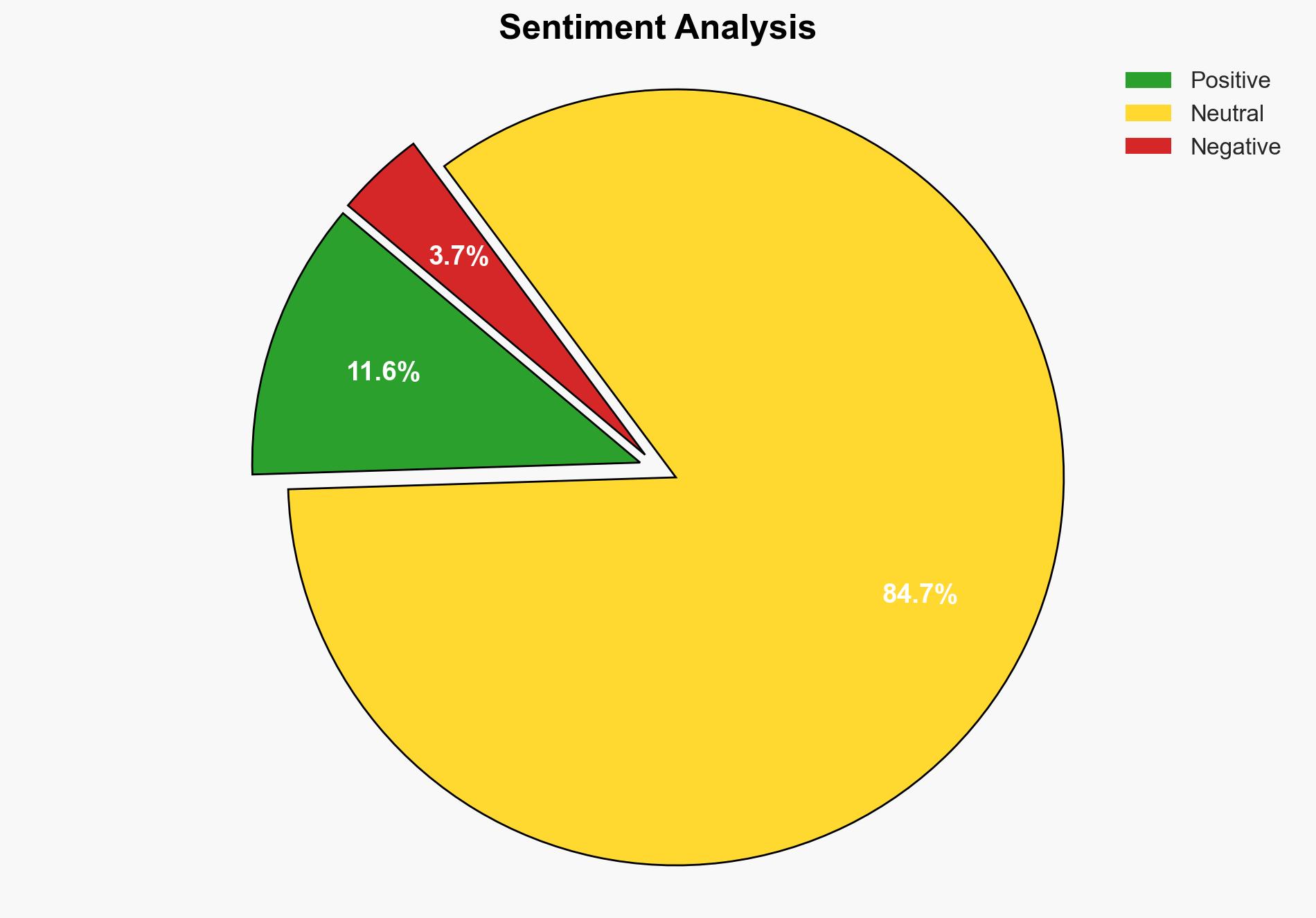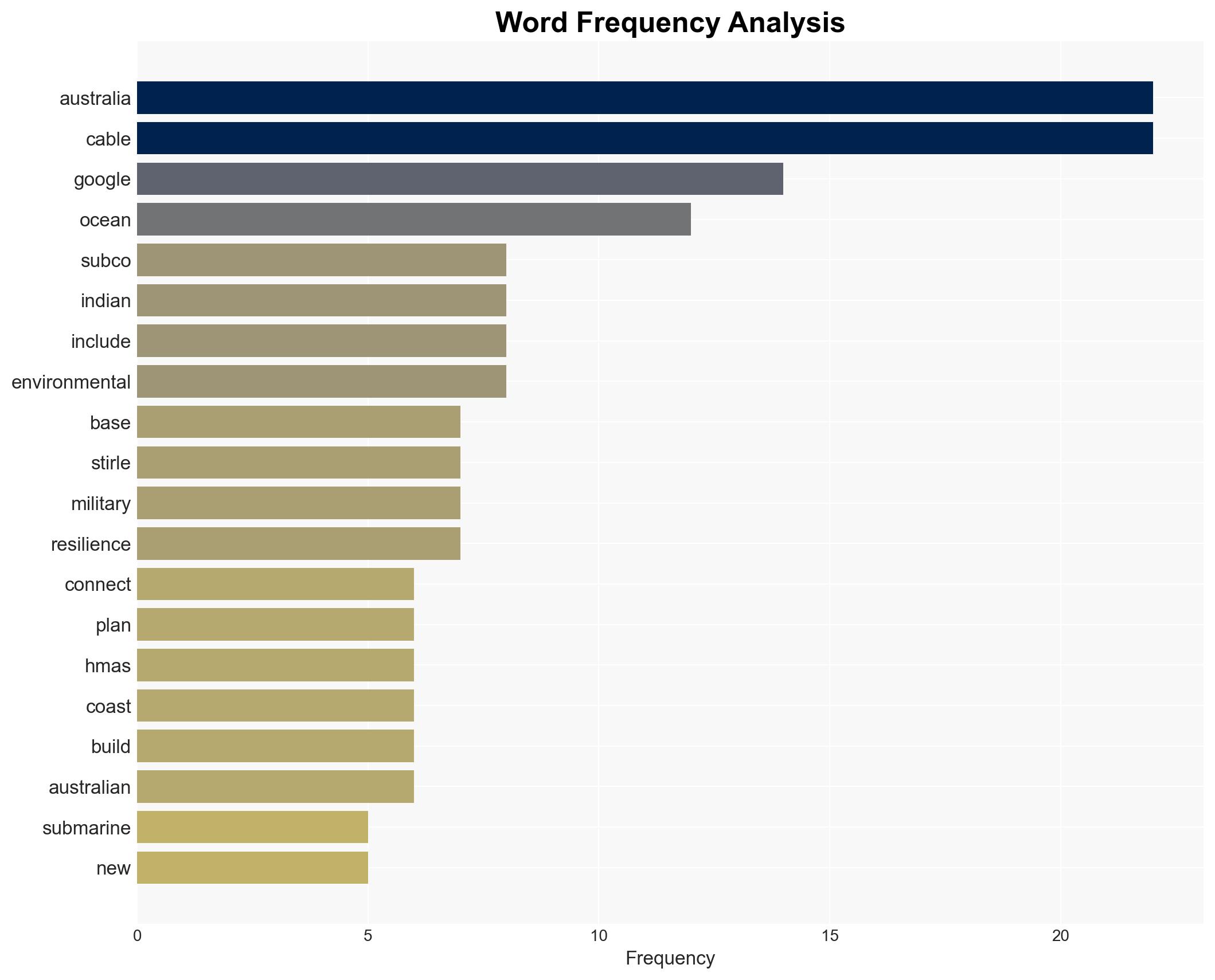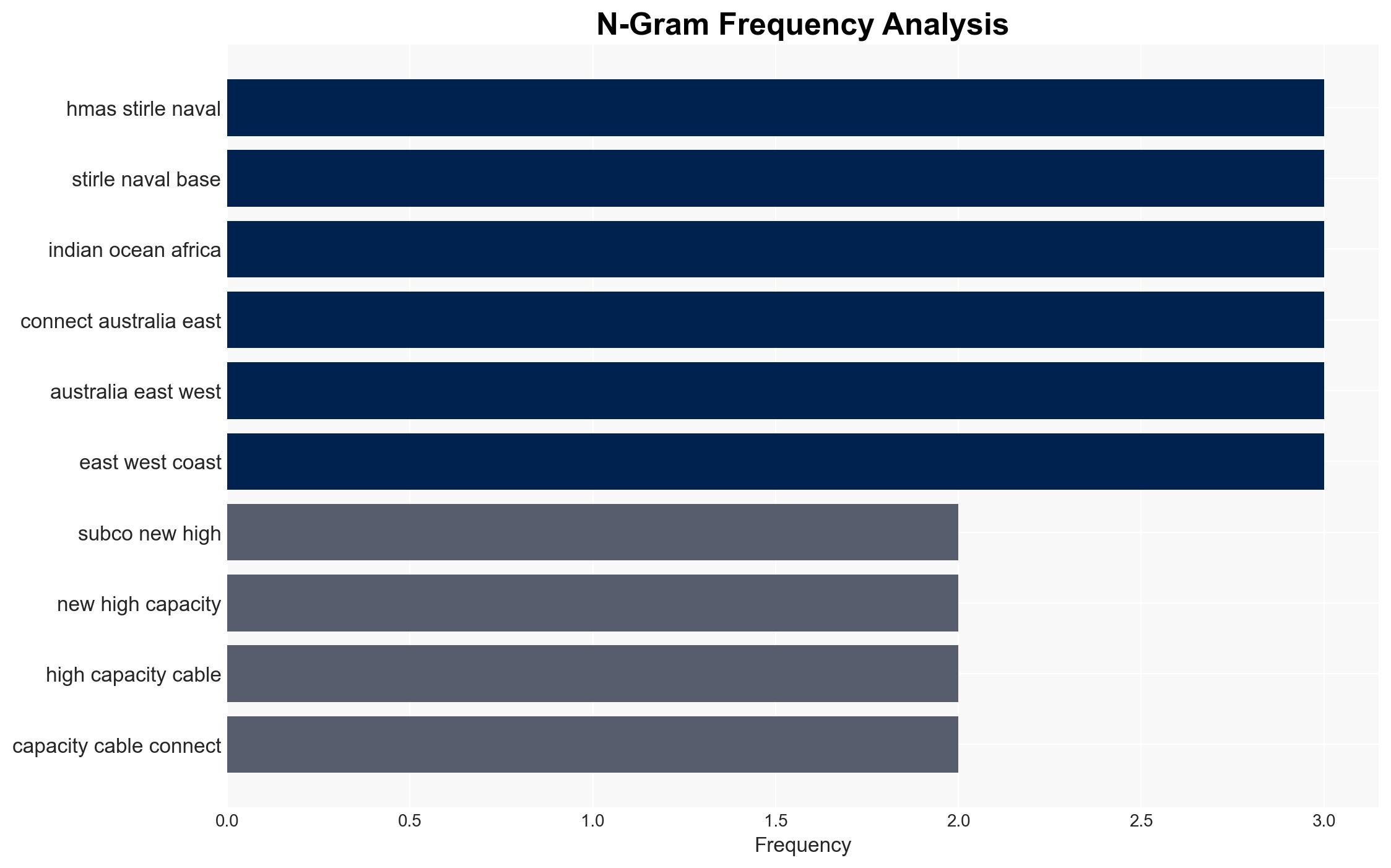Australia’s AUKUS base to connect to subsea cables as US allies boost AI pipes – The Times of India
Published on: 2025-11-13
AI-powered OSINT brief from verified open sources. Automated NLP signal extraction with human verification. See our Methodology and Why WorldWideWatchers.
Intelligence Report: Australia’s AUKUS base to connect to subsea cables as US allies boost AI pipes – The Times of India
1. BLUF (Bottom Line Up Front)
With a moderate confidence level, the most supported hypothesis is that the new subsea cable connections are primarily aimed at enhancing digital resilience and strategic military capabilities in the Indo-Pacific region, particularly in response to perceived threats from Chinese activities. Recommended actions include strengthening cybersecurity measures and diplomatic engagement with regional partners to mitigate potential geopolitical tensions.
2. Competing Hypotheses
Hypothesis 1: The primary objective of the subsea cable project is to enhance Australia’s digital infrastructure and military capabilities, thereby improving resilience against potential cyber and surveillance threats from China.
Hypothesis 2: The project is largely driven by commercial interests, with strategic military benefits being a secondary consideration.
Hypothesis 1 is more likely due to the involvement of military installations, strategic locations like Christmas Island, and the context of increasing geopolitical tensions in the Indo-Pacific region.
3. Key Assumptions and Red Flags
Assumptions include the belief that increased digital connectivity inherently enhances security and resilience. A red flag is the potential for misinterpretation of military intentions by regional adversaries, leading to escalation. Deception indicators could involve underreporting the military significance of the project to downplay strategic objectives.
4. Implications and Strategic Risks
The project could lead to heightened geopolitical tensions, particularly with China, which may perceive this as an encirclement strategy. There is a risk of cyberattacks on the new infrastructure, potentially disrupting military and civilian communications. Economically, increased connectivity could bolster regional trade but also expose vulnerabilities.
5. Recommendations and Outlook
- Enhance cybersecurity protocols for the new infrastructure to prevent potential cyber threats.
- Engage in diplomatic dialogue with regional powers to clarify the project’s objectives and reduce the risk of misinterpretation.
- Best-case scenario: The project strengthens regional security and economic ties without escalating tensions.
- Worst-case scenario: Misinterpretations lead to increased geopolitical tensions and cyber conflicts.
- Most-likely scenario: The project proceeds with moderate tension but enhances Australia’s strategic capabilities.
6. Key Individuals and Entities
Bevan Slattery (Subco Founder), Mark Hammond (Australian Chief of Navy), Google (Alphabet Inc.), Subco, Australian Department of Climate Change, Energy, Environment, and Water.
7. Thematic Tags
National Security Threats, Cybersecurity, Geopolitical Tensions, Indo-Pacific Strategy
Structured Analytic Techniques Applied
- Cognitive Bias Stress Test: Expose and correct potential biases in assessments through red-teaming and structured challenge.
- Bayesian Scenario Modeling: Use probabilistic forecasting for conflict trajectories or escalation likelihood.
- Network Influence Mapping: Map influence relationships to assess actor impact.
Explore more:
National Security Threats Briefs ·
Daily Summary ·
Methodology





